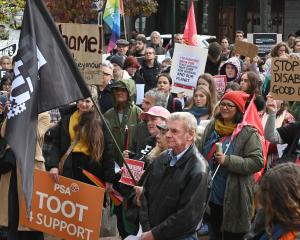Statistics NZ Figures reveal a 106% increase in Otago superannuitants in paid work between 2002 and 2012 - 3507 to 7233. They accounted for 3.3% of those working in Otago in 2002 and 5.9% in 2012.
In Southland, the increase was 75% (2046 to 3600) and nationally 98% (71,511 to 141,735).
Car salesman Vince Jones (65), of Dunedin, said he had been collecting his pension since October last year.
''It's certainly not enough to survive on.''
He had no intention of stopping work at Gilmour Motors, because living a sedentary retired lifestyle was unimaginable. He said he was too young to retire.
''Every decade, people are feeling younger - I do anyway.''
As people lived longer, they needed to work longer to pay for the extra years of living, he said.
''It's quite scary to think what one might need to live to 80 or 90.''
Older workers were not keeping young people out of jobs, he said.
''Young people have got as many opportunities but they have to be good enough to get a job and I think in many cases, they're not.''
A person got a job on their ''experience and ability'' and not their age, Mr Jones said.
''It's dog eat dog out there.''
Otago Chamber of Commerce chief executive John Christie said many pensioners worked in jobs younger people did not want, such as fruit-picking.
Otago's ageing workforce had ''more positives than negatives'', he said. Age Concern Otago chief executive Susan Davidson said more pensioners were working because they were healthier than ever - and superannuation did not cover the cost of living.
Senior Citizens Minister Jo Goodhew said superannuation increases had exceeded the increase in the cost of living and had increased much more than other benefits.
''Since [2009] all rates of superannuation have increased by 25%.
''Over the same period the consumer price index has increased by 12.73% and it is that figure that is used for other benefits such as for job-seekers and solo parents.''












